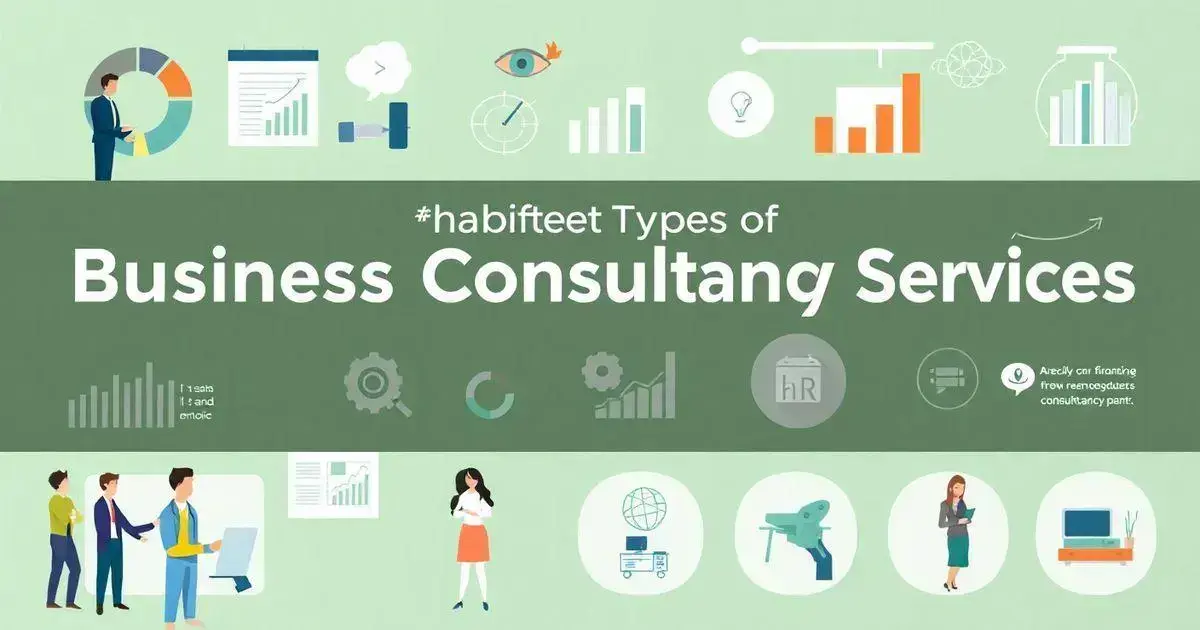Business consultancy plays a vital role in empowering companies to overcome challenges and achieve sustainable growth. With ever-changing market dynamics, businesses often require expert insights to stay competitive and efficient.
From streamlining operations to developing innovative strategies, consultancy services provide tailored solutions that address specific needs. These professionals bring valuable expertise that can help businesses thrive in a competitive landscape.
Ready to unlock the potential of consultancy to transform your business? Keep reading to explore its benefits and how it can propel your company toward success!
What is Business Consultancy?
Business consultancy involves professional advisory services that help organizations improve their performance and efficiency.Consultants bring specialized knowledge and expertise to solve various challenges.
They assess business processes, identify areas for improvement, and recommend strategies tailored to specific needs.This practice can encompass various fields includingmanagement, marketing, finance, and IT.
Typically, businesses seek consultancy when facing substantial changes like expansions, restructuring, or when trying to address persistent issues. Consultants provide unbiased perspectives and solutions based on industry best practices. With their help, companies can navigate complexities more effectively and achieve their overall objectives.
Ultimately, business consultancy serves as a valuable resource, enabling businesses to not only solve immediate problems but also to plan for long-term success.
Benefits of Hiring a Business Consultant

Hiring a business consultant can be a game-changer for your company. Their expertise helps identify areas of improvement, streamline operations, and develop strategies to overcome challenges. By providing an external perspective, they pinpoint inefficiencies and recommend actionable solutions, saving both time and money.
Consultants bring industry-specific knowledge that keeps your business competitive. From market analysis to operational enhancements, they tailor their recommendations to suit your goals. This guidance ensures you stay ahead of industry trends while implementing best practices for sustainable growth.
Additionally, a consultant can help address specific business problems, such as declining sales or operational bottlenecks. Their focus on measurable results enables them to create plans that drive performance and profitability. Embrace their insights to unlock your business’s full potential and ensure long-term success.
How to Choose the Right Business Consultancy
Choosing the right business consultancy is crucial for the success of your organization. Start by identifying your specific needs and goals. This could range from improving operational efficiency to enhancing marketing strategies. Once you know what you want, you can start researching potential consultants.
Look for consultants with proven expertise in the industry you operate in. A good consultant should have a solid track record and positive client testimonials. Experience in your particular sector can make a significant difference in the results you achieve.
Next, consider the consultancy’s approach. They should offer customized solutions rather than a one-size-fits-all method. This demonstrates their understanding of your unique challenges and goals. Ask questions about their methodology and be sure they align with your company values.
It is also vital to assess the cost of consultancy services. While you want quality expertise, you should also ensure that fees fit within your budget. Transparent pricing structures with no hidden fees are important for effective budget management.
Lastly, consider the personal rapport with the consultants. Working closely with a consultancy requires good communication and collaboration. Evaluate how well they understand your vision and requirements during initial discussions. A strong relationship fosters trust and facilitates better results.
Different Types of Business Consultancy Services

There are several types of business consultancy services available that cater to the diverse needs of organizations. Each type focuses on specific areas to help companies improve performance and achieve their goals.
One common type is management consultancy. This service helps businesses enhance their overall management practices. Management consultants assess, strategise, and implement solutions to optimize organizational structure, improve processes, and drive change.
Another type is marketing consultancy, which focuses on developing effective marketing strategies. These consultants analyze market trends, customer behaviour, and competition to create tailored marketing plans that enhance brand recognition and boost sales.
Financial consultancy is also important, offering expertise in financial planning, budgeting, and investment strategies. Firms might seek financial consultants to improve their financial health, manage risks, or achieve sustainable growth.
Additionally, IT consultancy provides support in technology-related matters. IT consultants help businesses adopt new technologies, enhance cybersecurity measures, and improve data management for better decision-making.
Lastly, there are human resources consultancy services focused on optimizing employee performance and workplace culture. These consultants assist with recruitment, employee training, compliance issues, and creating a positive work environment.
Each type of consultancy offers unique benefits, allowing businesses to select the right expertise based on their specific needs and objectives.
Successful Business Consultancy Projects
Case studies highlight the profound impact business consultancy can have on companies facing challenges. In one instance, a fashion retailer struggling with declining sales collaborated with a management consultant who identified market trends and redesigned their marketing strategy.
This resulted in a 25% sales increase within just six months, showcasing how strategic advice can yield measurable success.
Another example is a technology company that sought to enhance employee productivity. An HR consultant introduced team-building initiatives and refined communication processes, significantly improving workplace satisfaction. This not only boosted morale but also led to a 15% increase in overall productivity, proving the value of focused internal improvements.
A small manufacturing firm’s financial turnaround illustrates the power of consultancy in restructuring. With the help of a financial consultant, the company identified cost-saving opportunities, reducing operational expenses by over 20%.
These savings were reinvested into technological upgrades, driving efficiency and growth. These stories demonstrate how expert guidance can transform challenges into opportunities for long-term success.
Common Mistakes to Avoid in Business Consultancy

When engaging in business consultancy, it is essential to avoid common mistakes to ensure successful outcomes. One common error is failing to clearly define goals and objectives from the start. Without a clear direction, consultants may not deliver the results you expect.
Another mistake is not conducting sufficient research on potential consultants. It is crucial to check their credentials, experience, and client testimonials. Relying solely on referrals without doing your homework can lead to poor choices.
Many companies make the error of underestimating the importance of communication. Open and transparent communication between your team and the consultant is vital for the collaboration to be effective. Misunderstandings can derail projects and lead to unsatisfactory results.
Additionally, some businesses neglect to involve relevant stakeholders in the process. Engagement from employees and key decision-makers throughout the consultancy process ensures buy-in and facilitates smoother implementation of recommendations.
A significant mistake is failing to establish measurable key performance indicators (KPIs). Without KPIs, it becomes challenging to assess the effectiveness of consultancy efforts. Regular evaluation helps track progress and make necessary adjustments.
Lastly, rushing to implement recommendations without a proper evaluation can cause disruptions. It is essential to thoroughly assess the changes and strategize for successful adoption.
Future Trends in Business Consultancy
The future of business consultancy is evolving rapidly, driven by technological advancements and shifting market demands. A key trend is the growing reliance on data analytics. Consultants increasingly utilize big data to provide actionable insights, empowering businesses to make informed decisions based on real-time information and predictive models.
Sustainability is another prominent focus in consultancy. More companies are turning to consultants to help implement eco-friendly practices and ensure compliance with regulatory standards.
This emphasis on sustainability not only strengthens a company’s brand image but also attracts environmentally conscious consumers, creating a competitive edge in the market.
Remote consulting is reshaping client interactions through virtual meetings and collaboration tools, offering greater flexibility for businesses.
Additionally, consultants are guiding companies in fostering diversity and inclusion, essential for attracting top talent. The integration of AI further enhances efficiency, streamlining tasks like market analysis and automation for faster, more effective solutions.
Investing in Business Consultancy

Investing in business consultancy can yield significant rewards for companies aiming for growth. First, it provides access to specialized knowledge and experienced professionals who can offer insights not available in-house.
This can lead to improved operational efficiency and strategic advantages. Consultants also help identify problems requiring urgent attention, enabling organizations to allocate resources effectively.
Moreover, working with a consultant can foster a culture of innovation. By introducing fresh perspectives and best practices, consultants can drive teams to think outside the box. This often results in creative solutions to long-standing issues or opportunities that were previously overlooked.
Additionally, consultancy can help businesses navigate complex environments, such as regulatory changes and technological advancements. Having expert guidance in these areas reduces risks associated with strategic decisions and ensures compliance with industry standards.
Furthermore, the long-term relationship with a consultant can prove beneficial as they become familiar with the company’s operations, culture, and challenges. As a result, they can tailor solutions that effectively align with the organization’s goals.
Ultimately, investing in business consultancy is about enhancing capabilities, making informed decisions, and positioning for future success.
